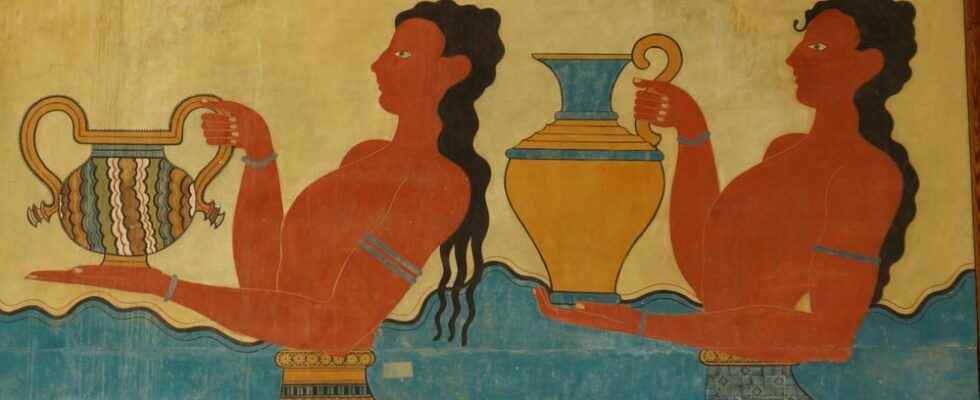For a long time, technological and economic developments have exceeded all expectations. Global trade is bigger than ever, people are living better, cities are getting bigger.
I’m talking about the Bronze Age. The period between about 1,800 and 1,200 BC was namely one of the highlights of history for human civilization.
Then there were around Eastern Mediterranean a number of high cultures, such as the Minoan in Crete, the Egypt of the New Kingdom and the Hittites in present-day Turkey. Things like the Luxor Temple and the palace at Knossos were built here, with a wealth and with technical skills that we still do not fully understand how to repeat.
In a way reminiscent of today’s oil addiction, they were also extremely dependent on tin, to be able to make the bronze required for everything from weapons and cart wheels to everyday tools.
And that still only applies to the great works that we have discovered and managed to preserve. Via clay tablets, we also know, for example, that King Zimri-la in present-day Syria around 1,750 BC had an ice house built where he collected snow from the mountains in winter to be able to have ice cubes in his wine during the hot summer. Zimri-la was not only an advocate of the Fanta and rosé of the time, he was also early aware of food safety – the clay tablets state that he carefully instructed his servants to wash the ice clean of “branches, soil and manure” before it ended up in his drinks.
3,000 years ago, Mycenaean traders used standardized transport mugs to make it easier to transport olive oil and wine across the Mediterranean. Today we use standardized containers.
And maybe is it is not a huge disaster, but a container ship stuck in the Suez Canal, which is to be considered the starting shot for doom, the poet recently thought Malte Persson in Expressen and drew parallels between the Bronze Age and our time. He is not the first to worry that the collapse that eventually affected those civilizations could also happen to us.
Like the dead canary in today’s globalized mines, the lack of semiconductors is highlighted.
What is believed to have caused the Bronze Age collapse were a number of separate but interacting factors that are easy to recognize in. The area was affected by major climate changes which in turn caused famine and migration. Severe epidemics afflicted the populations, and in several kingdoms there were strong internal rifts. In a way reminiscent of today’s oil addiction, they were also extremely dependent on tin, to be able to make the bronze required for everything from weapons and cart wheels to everyday tools. Possibly one can also see a parallel between today’s Russia and the invasions of that time by the as yet unidentified peoples known as the “sea people” and who laid the foremost cities of the Bronze Age cultures in ruins.
The similarities that many highlight above all, however, are the complex international trade networks, with economic diversification and long-distance trade. When that trade was disrupted by war and disease, it created problems that could quickly spread and escalate. The bottom line: see how uncertain globalization becomes!
Like the dead canary in today’s globalized mines, the lack of semiconductors, or microchips, is then highlighted. Following the pandemic, the shortage is said to have highlighted the risks of global trade. However, South Korea and Taiwan have increased microchip exports by 30 percent since 2019, it’s just that demand has also increased.
In our reactionary apocalyptic times, it is both popular to warn of impending collapses and to highlight the dangers of openness and exchanges.
In our reactionary apocalyptic times, it is popular to warn of collapses and highlight the dangers of openness. Here, the Bronze Age collapse becomes a perfect metaphor, despite the fact that the risks then, as now, are more about monopoly and pseudo-monopoly in certain key areas than about trade itself. The dependence on tin, in the same way as today’s oil dependencies, built a fragility into the economy.
Perhaps our civilization will also collapse, after all, all previous civilizations have done so. But those who want to lift the threat from trade and openness must present better evidence. For one thing is for sure. Both in the Bronze Age and in our time, these very forces have, above all, given humanity an incomparable flourishing.
I take a glass of rosé please, preferably with a piece of ice.
Read more texts by Isobel Hadley-Kamptz.
